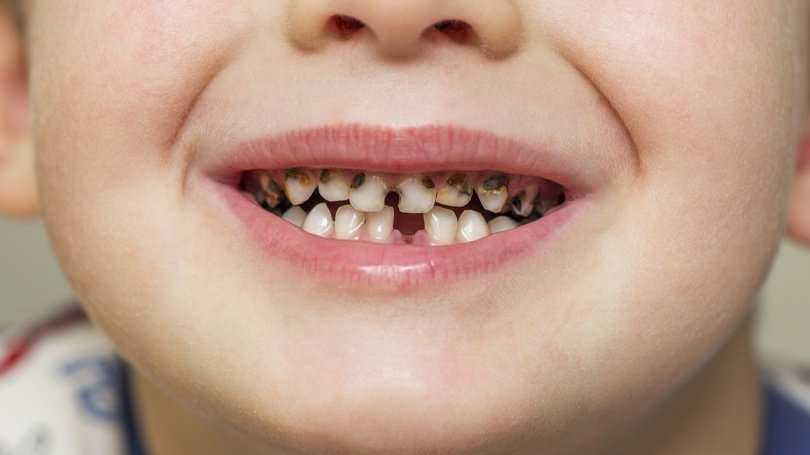A child’s smile has the power to light up any room, but maintaining that bright, healthy grin takes more than just good luck. From the moment baby teeth appear, proper oral care plays a crucial role in setting the foundation for lifelong dental health. Cavities remain one of the most common childhood diseases—yet they’re almost entirely preventable with the right approach. By understanding how cavities form, teaching healthy habits early, and partnering with a trusted dental team, parents can ensure their kids grow up with strong teeth and confident smiles.
The Foundation of a Healthy Smile
Good oral health starts early. The habits children form in their first years often shape their lifelong relationship with dental care. The early introduction of brushing, regular dental visits, and a positive attitude toward oral hygiene are essential in preventing tooth decay. Parents should begin cleaning their child’s gums even before teeth erupt by gently wiping them with a soft, damp cloth. Once the first tooth appears, use a soft-bristled toothbrush and a small smear of fluoride toothpaste.
Dental visits should ideally begin around a child’s first birthday. These early check-ups allow dentists to monitor growth, spot potential issues, and guide parents on preventive care. Regular appointments also help children become comfortable with the dental environment—turning what could be a source of fear into a routine act of self-care. After all, every child’s smile deserves care through children’s dentistry that emphasizes comfort, education, and preventive strategies.
Understanding Cavities and Their Causes
Cavities, or dental caries, develop when bacteria in the mouth feed on leftover sugars and starches from food, producing acids that erode the tooth enamel. Children are especially vulnerable because of frequent snacking, inconsistent brushing, and developing motor skills that make thorough cleaning difficult.
Sugary foods and drinks—especially sticky snacks or sweetened beverages—are a primary contributor. However, it’s not just about how much sugar a child consumes, but how often. Frequent exposure gives bacteria a constant food source, increasing acid attacks on enamel.
Fluoride plays a major role in protection, strengthening enamel and helping to reverse early signs of decay. Using a fluoride toothpaste and, when recommended by a dentist, receiving fluoride varnish treatments can dramatically reduce cavity risk.
Nutrition: The Unsung Hero of Oral Health
Diet is as important to oral health as brushing and flossing. A balanced diet rich in calcium, phosphorus, and vitamins helps strengthen teeth and gums. Encourage children to eat crunchy fruits and vegetables like apples, carrots, and celery—they not only promote saliva flow, which naturally cleans teeth, but also help reduce plaque buildup.
Avoid constant snacking and sugary drinks. Water should always be the preferred beverage, especially fluoridated water, which adds another layer of protection against tooth decay. Teaching kids to drink water after meals and snacks can help rinse away food particles and neutralize acids.
Making Oral Hygiene Fun and Effective
Getting kids to brush and floss consistently can be a challenge, but creativity makes all the difference. Use age-appropriate toothbrushes with fun designs, let children choose their toothpaste flavor, or turn brushing into a game or song. Setting a two-minute timer ensures brushing is thorough, and parents should supervise brushing until children have developed enough coordination to do it properly—usually around age seven or eight.
Flossing is often overlooked but equally important, as it removes food particles from areas that brushing can’t reach. Floss picks designed for children make this task easier and more engaging.
Reward systems can also encourage consistency. Stickers, stars, or simple praise help children associate oral care with positive reinforcement rather than obligation.
The Role of Parents and Dentists
Parents are the first teachers of healthy habits, but the dentist is an invaluable partner in reinforcing them. Pediatric dentists, in particular, specialize in understanding a child’s emotional and developmental needs. They use gentle techniques, explain procedures in simple terms, and create an environment that builds trust and comfort.
Regular check-ups every six months allow dentists to clean hard-to-reach areas, apply protective sealants, and detect early signs of decay. They also educate both parents and children about hygiene techniques, diet, and the importance of routine care. By combining at-home habits with professional guidance, parents can help their kids develop strong, cavity-free smiles that last into adulthood.
Empowering Children for a Lifetime of Healthy Smiles
When children understand the importance of oral care and see it as a normal part of daily life, they are more likely to maintain those habits as adults. Parents can lead by example—brushing and flossing together, making dental visits a family event, and celebrating good check-ups.
Oral health isn’t just about aesthetics; it affects a child’s confidence, comfort, and overall well-being. A healthy mouth allows them to speak clearly, eat comfortably, and smile proudly. Each small step—from that first toothbrush to regular dental visits—contributes to a lifetime of strong, happy smiles.
Learn more about the importance of building healthy dental habits early to give your child the best start toward a confident, cavity-free future.

